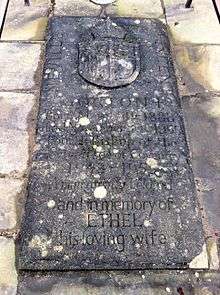Neville Gorton

Neville Gorton (1 March 1888 – 30 November 1955) was the 4th bishop of the restored see of Coventry [1] in the modern era.
Gorton was born on 1 March 1888, the son of an Anglican Canon, and educated at Marlborough College and Balliol College, Oxford, where he was an exhibitioner and Aubrey Moore student.[2] Gorton was a career school-master who after taking holy orders spent 20 years at Sedbergh School,[3] rising to the rank of housemaster. He was then appointed head of Blundell's School[4] where he was to remain until the call to face the challenges of a severely bombed diocese.
A passionate advocate of Christian Unity[5] Gorton's vision was for a “People’s cathedral”.[6] Gorton himself was a curious mixture of conventional (he passionately opposed the remarriage of divorced people in church) and lateral thinker – his wide experience with boys gave him a very realistic view of “sin”. A master of the short, pithy sermon, he was a much admired churchman.[7] He died in office on 30 November 1955.[8]
Notes
- ↑ "The Times", Friday, 13 November 1942; p. 7; Issue 49392; col C Ecclesiastical News New Bishop Of Coventry
- ↑ “Who was Who” 1897-1990 London, A & C Black, 1991 ISBN 0-7136-3457-X
- ↑ During which time he married Ethel Ingledew Daggett, with whom he had two sons and one daughter ("Who was Who"-Ibid)
- ↑ Margetson, John (1998). Gorty: Neville Gorton’s years at Blundell’s 1934-42. Letheringham Books. ISBN 0-9534580-0-8.
- ↑ "The Anglican Church and Christian Unity" Gorton,N London, Longmans, 1948
- ↑ Article in Time Magazine
- ↑ ”Neville Gorton:Bishop of Coventry- Reminiscences by some of his friends” Moyle, F.W (Ed) London, SPCK, 1957
- ↑ The Cathedral Church of St. Michael and the Church of the Holy Trinity, Coventry. Order of service for the burial of Neville Vincent Gorton ... Bishop of Coventry; Monday, 5 December 1955, at 12 noon.
| Religious titles | ||
|---|---|---|
| Preceded by Mervyn George Haigh |
Bishop of Coventry 1943–1952 |
Succeeded by Cuthbert Bardsley |